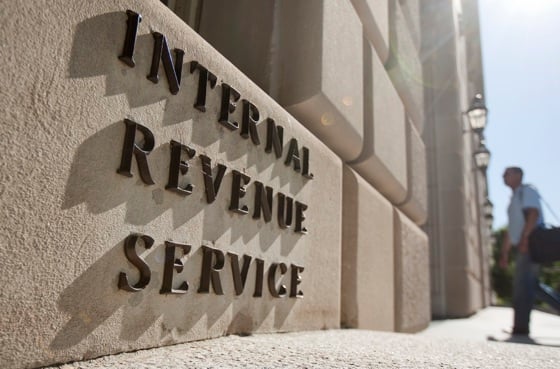Set-up is purportedly simpler, fairer and will lower everyone's taxes; it fails on all three counts
Texas Governor Rick Perry is scheduled to unveil a flat tax today, which will bring the number of Republican presidential candidates backing some form of the idea to three and a half.
A 9 percent flat tax is one of the nines in Herman Cain's 9-9-9 plan. Newt Gingrich supports an optional flat tax, meaning that taxpayers can opt for a flat tax or file their taxes under the current system, which is what Perry has in mind, as well. The half supporter is Mitt Romney, who, characteristically, says he wants a “flatter” tax but has avoided being pinned down.
People want their taxes simpler, fairer and lower. A flat tax promises all three and would deliver on none.
Let's start with “lower.” Taxes cannot be lower for everyone and still raise the same amount of money. For each dollar your taxes are lower, someone else's must be a dollar higher. Yes, cutting taxes may cause people to work harder and thus increase government revenue. This hope masquerading as a theory has dominated conservative economic thinking for three decades, despite all evidence to the contrary. If you want to give everyone a tax cut -- under the current system, under a flat tax or under any other arrangement -- all you have to do is lower the tax rate. This has nothing to do with flatness.
Would a flat tax be “fairer” than the current system? Perry plans to call for a rate of 20 percent, which is lower than today's top rate of 35 percent and higher than today's lowest rate (which is zero). If your income currently puts you in a bracket higher than 20 percent, a 20 percent flat tax constitutes a tax cut. If you're in a bracket lower than 20 percent, a flat tax will constitute an increase, unless it comes with lots of deductions, in which case it's no longer flat. If lowering taxes on high incomes and raising taxes on low incomes would be an improvement, then a flat tax is fairer than the current code. Otherwise, it isn't.
Finally, would a flat tax make paying taxes “simpler”? Under Gingrich's and Perry's “optional” arrangement, people will have to figure their taxes twice in order to decide which system to pay them under. That's not simpler.
Even if the flat tax was the only option, this wouldn't make the tax code much simpler. Multiple brackets add one line and one simple calculation to the chore of computing your taxes. What causes the tremendous complexity of the tax code is defining taxable income. Some complexity is unavoidable in a complex economy. Some of it represents the hard work of lobbyists for special interests. None of it has anything to do with tax rates or how many brackets there are.
We're not opposed to reform that cuts loopholes, ends subsidies and lowers tax rates. But any reform must make the tax code more progressive, not less.
--Bloomberg News--







